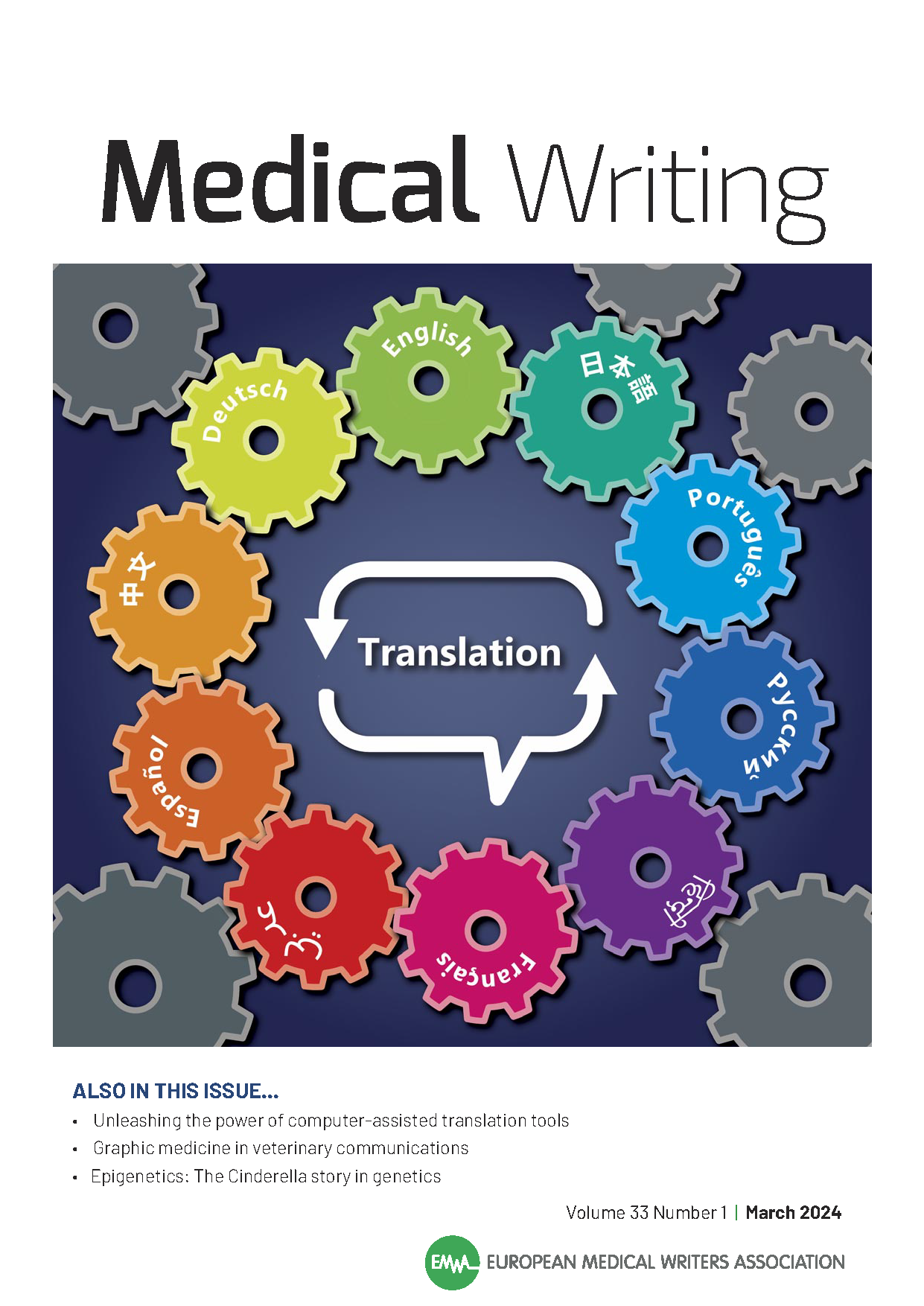
Volume 33, Issue 1 - Translation
Translating “medicalese”: The case of informed consent forms
Author: Raluca Chereji
Abstract
Informed consent forms (ICFs) are documents used in clinical research to inform prospective participants about – and obtain their consent for – partaking in a clinical trial. Evidence suggests that ICFs may not be fit for purpose because their linguistic and textual features exceed the comprehensibility needs of their non-expert target audience. These issues also impact medical translators who translate ICFs for prospective participants of international trials. This article discusses some of the main challenges of translating ICFs, such as specialised terminology and jargon, lexico-syntactic complexity, and text length, and argues for increased training and collaboration to mitigate these difficulties in medical translation.
Medical Writing. 2024;33(1):44–47. https://doi.org/10.56012/htxi5792
 Download the full article
Download the full article
Search
Articles
Links
Editoral Board
Editor-in-Chief
Co-Editors
Senior Editor
Victoria White
Managing Editor
Alicia Brooks Waltman
Associate Editors
Section Editors
AI/Automation
Biotechnology
Digital Communication
EMWA News
Freelancing
Gained in Translation
Getting Your Foot in the Door
Good Writing Practice
Pablo Izquierdo / Alison McIntosh
In the Bookstores
Publications
Medical Communications/Writing for Patients
Medical Devices
My First Medical Writing
News from the EMA
Pharmacovigilance
Regulatory Matters
Regulatory Public Disclosure
Louisa Ludwig-Begall / Sarah Kabani
The Crofter: Sustainable Communications
Veterinary Writing
Editors Emeritus
Layout Designer
Chris Monk
 Visit the EMWA website
Visit the EMWA website